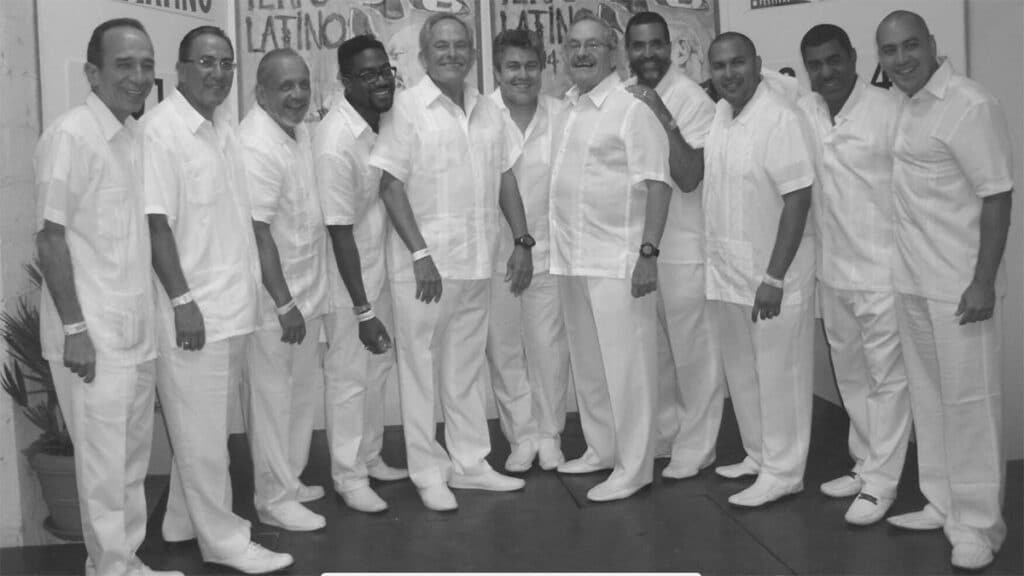Orquesta Broadway is a New York Cuban charanga band that formed in Harlem in 1962. They were popular in New York from the 1960s-80s. The band has been together for over 6o years and is a living connection to the Golden Age of New York salsa of the 1960s-70s.
Orquesta Broadway in New York City

Lincoln Center
Orquesta Broadway plays Cuban charanga (salsa); at the David Rubenstein Atrium in Lincoln Center; on Friday, September 20, 2024 at 7:30pm. FREE. 🇨🇺
Hamilton Heights, West Harlem
Orquesta Broadway celebrates 60 years of charanga (salsa) with guest flutists Karen Joseph and Connie Grossman; in Aaron Davis Hall at City College Center for the Arts, in Hamilton Heights, West Harlem; on Friday, March 24, 2023 at 7pm. From $25. citycollegecenterforthearts.org 🇨🇺
New York City Venues
- Aaron Davis Hall at City College
- David Rubenstein Atrium at Lincoln Center
Orquesta Broadway
The band was founded by flutist Eddy Zervigón and his brothers Kelvin and Rudy.
Charanga
Charanga is an early form of Cuban salsa that formed when the Haitian Revolution (1791-1804) spread a Haitian Diaspora around the Caribbean (including to New Orleans where jazz was born). Haiti and Cuba are neighbors, just 400 miles apart.
Rich people wanted to bring the fun of African Diaspora dance traditions inside the house. So the the Cuban orquesta típica (brass, woodwinds and big timpani drums) evolved into the charanga francesa with more delicate flutes, violins and smaller drums that we now call timbales. The Haitian influence is important. It brought both European influences (the French contredanse) and African Diaspora influences (love of dance and syncopation.)
The Haitian Diaspora brought the French contredanse which became the Cuban danzón. Danzón was influential all the way to Argentina where the habanera (la habana manera or the way they dance in Havana) mixed with candomblé (the samba root) into milonga, which was Europeanized into tango.
Charanga was popular in Cuba in the 1940s, and popular in New York in the 1960s, where it is part of the evolution of salsa. Salsa evolved from charanga, to boogaloo (Latin R&B in English), to Eddie Palmieri’s trombone line, and New York salsa dura (hard salsa) best expressed by Johnny Pacheco’s Fania in the 1970s, to salsa romántica of the 1980s, and today’s mix of all of the above.
Charanga Flutes and the Mozambique
To an island Puerto Rican ear, the charanga flute sounds like the Carib Grackle, the tropical blackbird. They are very smart like crows in the States. In Puerto Rico, they are called Mozambique.
They are spectacular flyers who change their tail shape. It’s a vertical rudder during flight, and a horizontal stabilizer to provide more lift as they land. We wonder if they influenced the variable wings in some modern jet designs.
Their mating rituals are spectacular. The male chases the female and does a little dance where he spreads his wings and fluffs himself into a macho display. The female usually looks over her shoulder with indifference and hops or flies away. He chases her and eventually, well you know. The charanga flute sounds like a roosting tree of Mozambiques.
